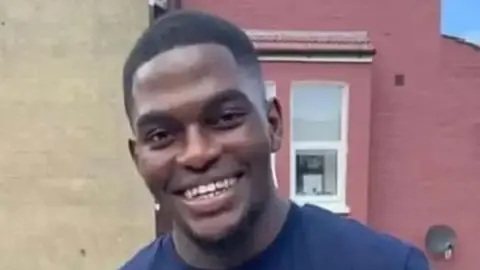In a significant development concerning the controversial police shooting of Chris Kaba, it has been announced that the officer involved, Sergeant Martyn Blake, is set to face a gross misconduct hearing. This decision, communicated by the Independent Office for Police Conduct (IOPC), follows a ruling that cleared Blake of murder after he shot Kaba in the head during a traffic stop in Streatham on September 5, 2022. The decision to proceed with the misconduct hearing reflects the ongoing scrutiny and public interest surrounding police use of force, particularly within the context of race and community relations in London.
Sergeant Blake, a 41-year-old member of the Metropolitan Police’s specialist firearms unit MO19, discharged his weapon when Kaba attempted to evade a police stop, leading to a violent clash. Details presented during Blake’s trial revealed that at the time of the incident, officers were not aware that Kaba, who had been involved in a separate nightclub shooting days earlier, was behind the wheel of the Audi in question. The incident escalated rapidly as Mr. Kaba tried to flee from the police vehicle, resulting in Blake’s fateful decision to use lethal force.
The legal ramifications for the officer involved have drawn considerable attention. The Metropolitan Police’s Assistant Commissioner, Laurence Taylor, stated that strong representations were made indicating Blake should not face further action, citing the comprehensive nature of the evidence presented during the courtroom proceedings, which ultimately led to a not guilty verdict. However, the IOPC’s decision to move forward with a misconduct investigation indicates a contrasting perspective on the case, suggesting that the circumstances merit additional examination.
Amanda Rowe, the director of the IOPC, acknowledged the profound impact this decision could have on both Kaba’s family and Sergeant Blake. In her statements, Rowe emphasized the importance of transparency and thorough scrutiny, particularly within communities of color that are heavily impacted by policing policies and practices. She pointed out that the threshold for opening a misconduct case is based on a balance of probabilities, suggesting that enough evidence exists to pursue the hearing.
The implications of the IOPC’s decision extend beyond Kaba’s tragic death. It taps into a broader narrative regarding police accountability and public trust in law enforcement, particularly within London’s diverse communities. As part of this process, the hearing will be chaired by a chief officer from a different police force to maintain objectivity and independence in the proceedings.
The Metropolitan Police have also made it clear that firearms officers operate under rigorous guidelines, responding to numerous high-risk incidents annually but discharging their weapons infrequently. They emphasize the commitment of officers to act with professionalism and caution, notwithstanding the heightened scrutiny they now face in light of incidents like Kaba’s shooting. This incident reveals a crucial confluence of the legal system and police protocol, igniting discourse on how law enforcement can engage with communities while ensuring public safety.
In conclusion, the forthcoming misconduct hearing for Sergeant Blake represents a key moment of accountability in the relationship between the police and the communities they serve. The proceedings will undoubtedly be watched closely by both the public and legal analysts as they unfold, and they will further influence discussions concerning police practices surrounding the use of lethal force in the UK. The case exemplifies the need for continual evaluation and reform in policing policies, especially in contexts where racial and societal tensions are prevalent.



